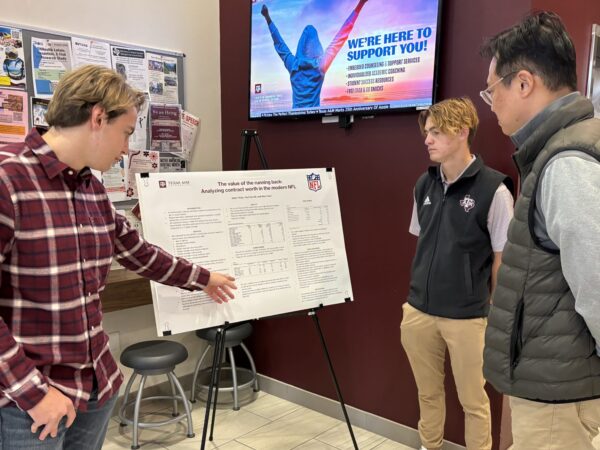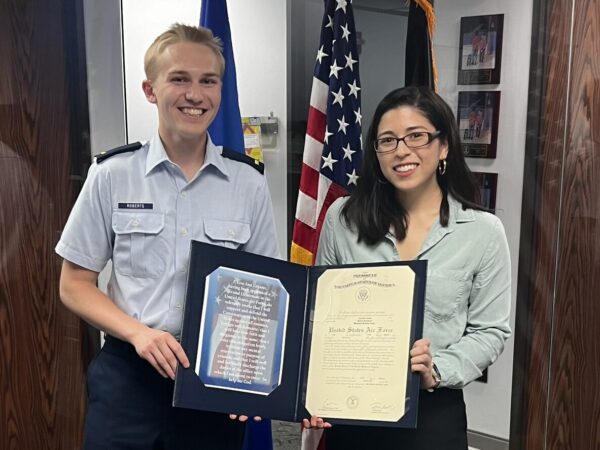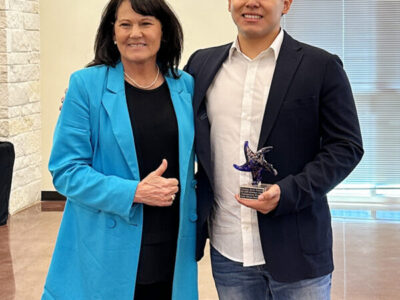What is work burnout and how can we avoid it?
Key takeaways
- Burnout can hurt employee physical and mental well-being and organization productivity, causing financial loss.
- Burnout can be caused by role overload, role conflict, lack of rewards and even age.
- Burnout can be avoided by employers building social support and employees taking regular ‘offline’ vacations.
For human resource development professor Dr. Jia Wang, work burnout is bad for business.
She said burnout is a serious concern with major consequences for both employees and employers. Part of the challenge is that organizations today are pressed with ‘doing more with less’.
“In the process of chasing results, organizations expect more and more from their employees, and forget that employees can only do so much for so long,” Wang said.
What is burnout?
Wang said burnout is a multi-dimensional process. It consists of three components—emotional exhaustion, depersonalization and diminished personal accomplishment.
Emotional exhaustion, or compassion fatigue, is characterized by lack of energy and a feeling that one’s emotional resources are depleted. It can result in employees dreading the prospect of returning to work for another day.
“Emotional exhaustion may coexist with feelings of frustration and tension when employees realize that they cannot continue to give themselves or be as responsible as they have been in the past,” Wang said.
Depersonalization, or dehumanization, is another component of burnout that can occur when employees feel they are treated as objects rather than human beings.
“Visible symptoms include the use of derogatory language, strict compartmentalization of professional lives, intellectualization of the situation and withdrawal through longer breaks or extended conversations with co-workers.”
The final component of burnout is diminished personal accomplishment, which is characterized by the tendency to evaluate oneself negatively.
Wang noted that these three components can lead to employees distancing themselves psychologically and experiencing a sense of inadequacy in terms of their ability to relate to people and perform their jobs.
Therefore, Wang believed that burnout should be avoided by all means because it poses a threat to employees’ physical and emotional well-being, as well as to employers’ productivity, which can create financial loss.
How can we avoid burnout?
Wang proposed four evidence-based strategies for employees and organizations to reduce burnout—building social support, setting realistic expectations, providing career opportunities and promoting healthy work behaviors.
She also said regular vacations are critical for helping employees avoid burnout. However, to make vacations truly effective, Wang reminded organizations to not expect employees answer work emails during their vacation.
According to Wang, while it is helpful that employees practice healthier work-life balance, it is equally important that supervisors model this behavior to effect change.
“It is not enough for organizational leaders to formulate or promote health-related policies and programs (e.g., wellness programs and flexible work schedules), they must also model healthy work behaviors,” Wang said. “Supervisors need to stop sending work emails to subordinates during the weekends, stop working long hours, and take time each day for self-care (for example, meditating, exercising, taking a power nap and listening to music).”
Wang said if leaders demonstrate these healthy habits, then subordinates will likely follow suit.
“We don’t lack policies in the workplace; the problem is we don’t practice what we advocate.”
Dr. Jia Wang is a Professor of Human Resource Development in the Department of Educational Administration and Human Resource Development. Dr. Wang’s research focuses on international/ national and cross-cultural human resource development, workplace incivility, organization crisis management, workplace learning and career/family issues.
About the Writer
Heather is responsible for news coverage in the Department of Health and Kinesiology, as well as the Department of Educational Administration and Human Resource Development.
Articles by HeatherFor media inquiries, contact our Media Relations Coordinator, Ashley Green
Fundraising
To learn more about how you can assist in fundraising, contact Amy Hurley, Director of Development ahurley@txamfoundation.com or 979-847-9455














